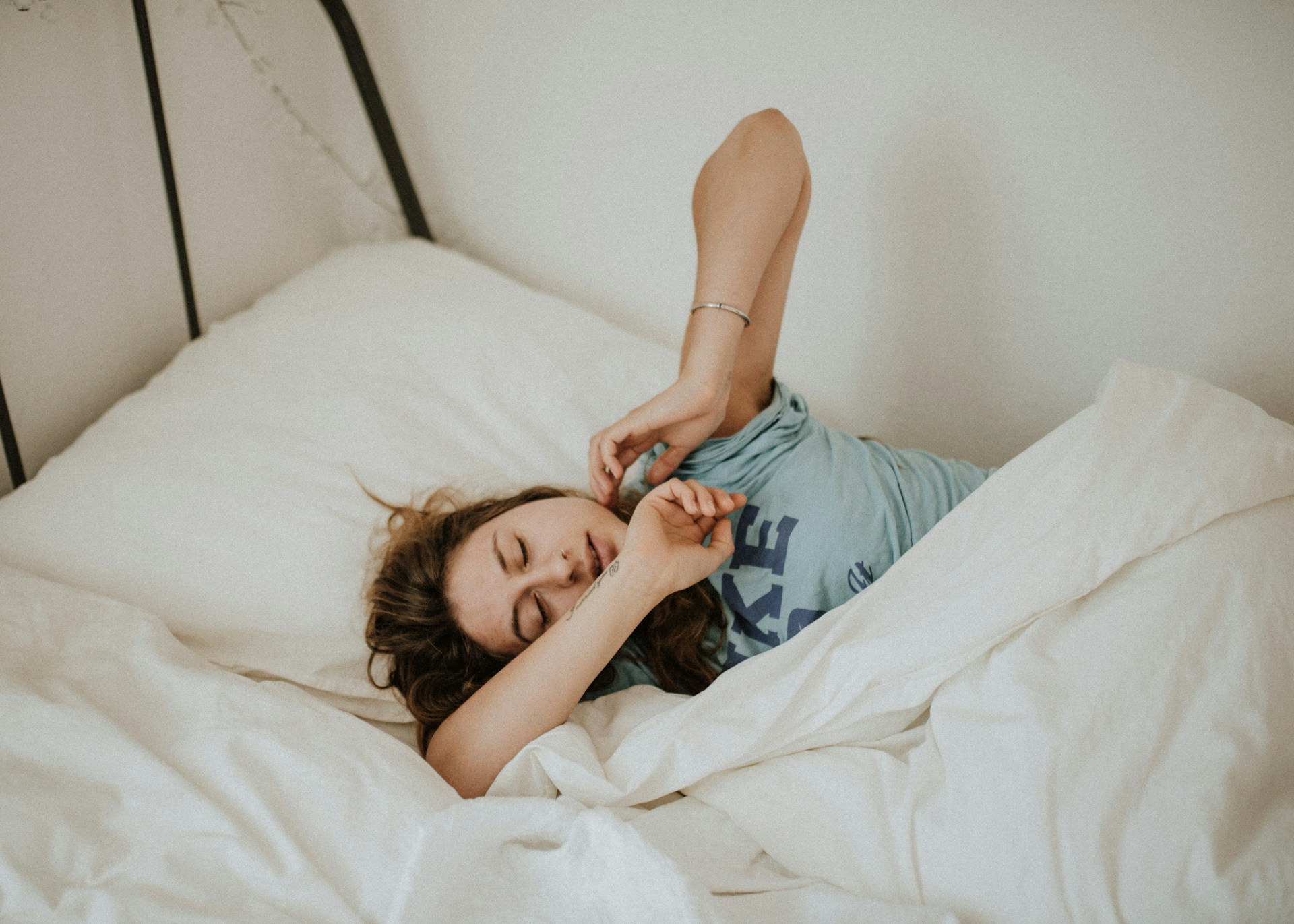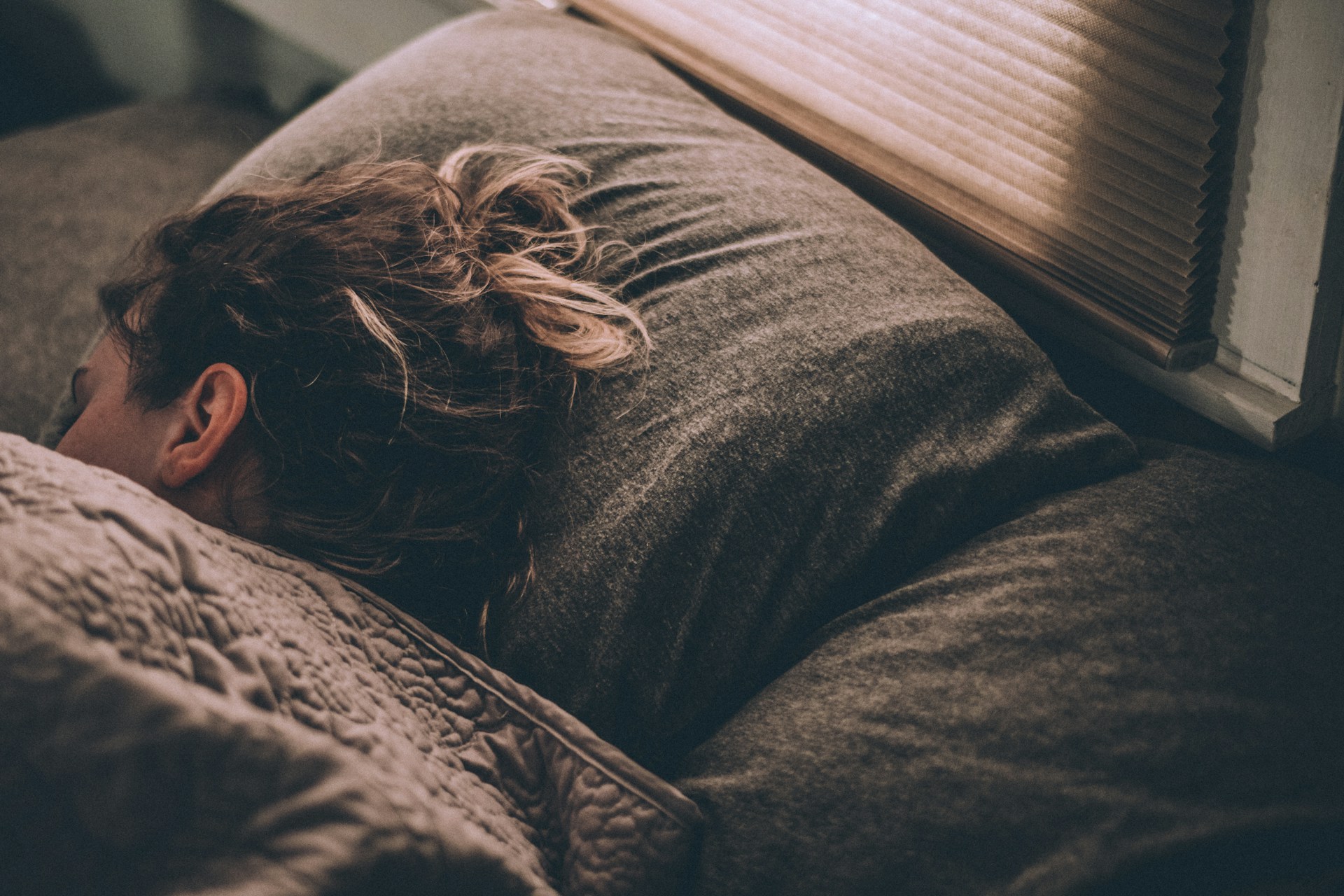
How I Improved My Sleep Quality: Practical Tips for a Restful Night
Introduction
I used to think sleep was something that could be pushed aside. Late nights working or binge-watching my favorite shows seemed like a badge of honor. But then I started noticing the effects: sluggish mornings, trouble concentrating, and a constant craving for caffeine. Sound familiar? If you’re nodding along, you’re not alone. Sleep is crucial for both mental and physical health, and improving the quality of your sleep can have life-changing benefits. Let me share how I turned things around, plus some practical tips to help you do the same.

Why Is Sleep So Important?
Before we dive into tips on how to improve your sleep, it’s important to understand why sleep matters. Consider sleep as the nightly reset button for your body. It’s when your brain consolidates memories, repairs muscles, and regulates hormones. When we get good sleep, our bodies recharge, our minds are sharper, and our emotional resilience strengthens.
Lack of sleep? That can lead to more than just a grumpy morning. Over time, chronic sleep deprivation can increase the risk of a host of problems, including weight gain, weakened immune function, heart disease, and even cognitive decline. I noticed that when I skimped on sleep, everything else suffered—work performance, social interactions, and even my mood. I wasn’t my best self.
It wasn’t until I made sleep a priority that I realized just how much it affected my overall well-being. Now, I’ll share the key changes I made and the tips that helped me transform my restless nights into peaceful slumber.
Practical Tips to Improve Sleep Quality
1. Create a Sleep Sanctuary
This was one of the first things I tackled. I realized that my bedroom didn’t exactly scream "relaxation." I used to bring my laptop to bed, work until late, and then wonder why I couldn’t sleep. To fix this, I turned my bedroom into a sleep sanctuary—an oasis for rest.
Here’s what I did:
-
Declutter: I removed anything that didn’t contribute to a restful environment. No more work papers scattered across the bed or devices within arm’s reach.
-
Invest in Comfort: I splurged on soft, breathable sheets, a high-quality mattress, and pillows that matched my sleeping position. You spend a third of your life in bed, so why not make it comfy?
-
Control the Lighting: I switched to softer lighting, opting for warm, dimmable lights that gradually prepared me for bed. Harsh lighting signals your brain that it’s still daytime, so creating a dim, cozy atmosphere really helped.
Bonus Tip: If you're sensitive to noise, consider using earplugs or a white noise machine. I personally love the sound of rain, so I play soft rain sounds in the background to block out any disruptive noises.
2. Stick to a Sleep Schedule
Consistency was a game-changer for me. I used to think I could make up for a few late nights by sleeping in on the weekends. But that inconsistency in my sleep schedule only confused my body. It’s like having jet lag all the time! Once I stuck to a consistent sleep and wake time, everything started to click.
What I did:
-
Set a Fixed Bedtime: I picked a bedtime that gave me 7-8 hours of sleep and stuck to it—no matter what. That was hard at first, especially on weekends, but it’s crucial for setting your internal clock.
-
Wake Up at the Same Time: Even if I stayed up later than I intended, I forced myself to wake up at the same time each morning. This reinforced my body’s natural sleep rhythm.
Bonus Tip: If you find it difficult to wake up, try using a sunrise alarm clock that simulates natural light. It helped me wake up more gradually and feel less groggy in the morning.
3. Mind What You Eat and Drink
Caffeine and I have a love-hate relationship. I love it, but my sleep doesn’t. At first, I resisted cutting back on my afternoon coffee habit, but after a few weeks of experimentation, I discovered that avoiding caffeine after 2 PM significantly improved my sleep.
Here’s what worked for me:
-
Limit caffeine: I limited coffee, tea, and caffeinated soft drinks after lunch. I also learned to check hidden caffeine sources like chocolate or certain pain medications.
-
Avoid Heavy Meals: A big meal before bed left me feeling uncomfortable and made it harder to fall asleep. Now, I stick to lighter, healthier snacks in the evening, like yogurt or a small handful of nuts.
Pro Tip: If you need an evening beverage, opt for herbal teas like chamomile or valerian root. They promote relaxation and don’t interfere with sleep.
4. Wind Down with a Bedtime Routine
This was my personal favorite change, and one I still look forward to every night. By having a consistent wind-down routine, I send my brain the message that it’s time to sleep.
My routine looks like this:
-
Unplug: One of the hardest things was giving up late-night scrolling on my phone. Blue light from screens tricks your brain into thinking it’s still daytime, so I set a rule—no screens an hour before bed. Instead, I put my phone on "Do Not Disturb" and leave it on my nightstand.
-
Read or meditate: I love winding down with a good book. However, I avoid thrillers or anything too stimulating. If I’m feeling extra anxious or restless, I use a meditation app that guides me through deep breathing exercises. It’s incredibly calming.
-
Pamper Myself: I use my bedtime routine as an excuse to treat myself. Whether it’s a skincare ritual or slipping into cozy pajamas, I love creating a sense of calm around bedtime.
Bonus Tip: If you struggle with anxious thoughts at night, try journaling before bed. Writing down my worries helped clear my mind and put me at ease.
5. Get Moving During the Day
We’ve all heard that exercise is good for us, but did you know it can also improve your sleep quality? I discovered that on days when I exercised, especially outdoors, I fell asleep faster and slept more deeply.
How I made it work:
-
Morning Workouts: I found that morning exercise, especially getting outside for a brisk walk or run, worked wonders for my sleep. The exposure to natural light early in the day also helped regulate my circadian rhythm.
-
Avoid Late-Night Workouts: On the flip side, I learned that vigorous exercise too close to bedtime could actually keep me up. Now, I stick to gentle yoga or stretching in the evenings to wind down.
Bonus Tip: Don’t underestimate the power of movement. Even light activity like walking or housework can make a difference. Plus, it helps reduce stress, which is another sleep disruptor.
6. Manage Stress and Anxiety
I’m someone who tends to lie in bed replaying conversations or worrying about the next day. Anxiety and stress are frequent causes of sleep disorders. It’s easy to get caught up in the whirlwind of thoughts, but learning to manage stress significantly improved my sleep.
What helped me:
-
Mindfulness Meditation: I started practicing mindfulness meditation during the day and before bed. It helped me stay present and detach from racing thoughts. Even 10 minutes a day made a noticeable difference.
-
Breathing Exercises: When my mind is racing, I focus on deep breathing. I use the 4-7-8 breathing technique—inhale for 4 seconds, hold for 7, and exhale for 8. This calms my nervous system and helps me drift off.
Bonus Tip: If your mind is especially busy at night, write a to-do list for the next day. I find that offloading my thoughts onto paper prevents me from ruminating once I’m in bed.
7. Consider Your Sleep Environment Beyond the Bedroom
Creating a conducive sleep environment goes beyond just your bedroom. I found that small changes to my environment throughout the day impacted my sleep at night.
What I changed:
-
Natural Light Exposure: I made an effort to get outside during the day, especially in the morning. Sunlight helps regulate melatonin production and keeps your circadian rhythm in check.
-
Temperature Control: I used to wake up sweaty and uncomfortable, so I started paying attention to the room temperature. Ideally, your bedroom should be cool—around 60-67°F (15-19°C).
Bonus Tip: If you live in a noisy area, consider using earplugs or playing white noise to block out disruptive sounds. I found the gentle hum of a fan or a white noise app incredibly soothing.

Frequently Asked Questions (FAQ)
1. How much sleep do I need?
While 7-9 hours is the general recommendation for adults, everyone’s needs are different. Some people function perfectly on 7 hours, while others may need 9 to feel their best. Listen to your body and see what feels right for you.
2. What if I can’t fall asleep despite following all these tips?
If you’ve been consistently practicing good sleep hygiene and still can’t sleep, it might be time to evaluate other factors. Stress, anxiety, or underlying health conditions like sleep apnea could be interfering with your rest. Talking to a healthcare professional can help identify and address these issues.
3. Is napping during the day bad for sleep?
Naps aren’t inherently bad, but they can disrupt your nighttime sleep if they’re too long or too late in the day. If you must nap, try to do so early in the afternoon and for no more than 20 to 30 minutes.
4. Does drinking alcohol help me sleep?
While alcohol might make you feel sleepy at first, it can actually disrupt your sleep later in the night. It interferes with REM sleep, which is the most restorative stage, leaving you feeling groggy in the morning.
5. What can I do if I wake up in the middle of the night?
Avoid getting worried if you wake up and find it difficult to get back to sleep. Get up and do something relaxing like reading or light stretching. Avoid screens, as the blue light can make it harder to fall back asleep.
Conclusion
Improving sleep isn’t just about getting more hours under your belt—it’s about the quality of that sleep. By creating a peaceful sleep environment, sticking to a consistent schedule, managing stress, and making lifestyle adjustments, I’ve transformed my restless nights into restful ones. Hopefully, these tips can help you too. Sweet dreams!
